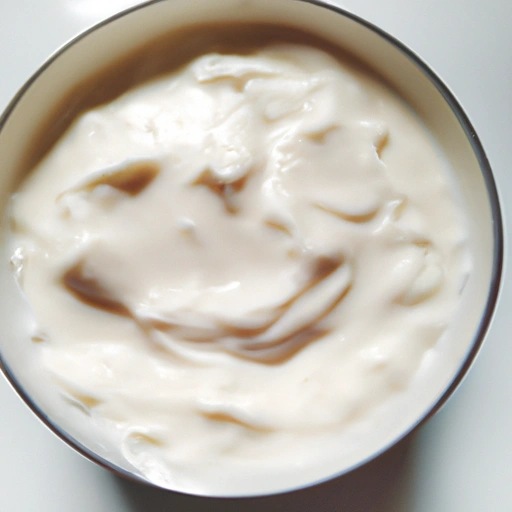Dahi
Description

Dahi, also known as curd in the Indian subcontinent, is a fermented dairy product made from cow or buffalo milk. It is similar to yogurt but has a unique taste and texture due to the different bacterial cultures used in its production. Dahi is an integral part of Indian cuisine and is enjoyed for its cooling effect, creamy texture, and slightly tangy flavor. It is consumed on its own or as part of various dishes.
Common uses
Dahi is commonly used in Indian cuisine as a cooling agent to balance the heat of spices. It can be eaten plain, sweetened with sugar, or spiced with cumin and other herbs. Dahi also serves as a base for raita, a condiment made with vegetables and spices, and is used in marinating meats for dishes like tandoori chicken.
Nutritional value
Calories
Approximately 59 calories per 100 grams (3.5 oz / a bit less than 1/2 cup).
Protein
About 3.5 grams (0.12 oz) of protein per 100 grams.
Fat
Roughly 3.0 grams (0.11 oz) of fat per 100 grams.
Carbohydrates
Around 4.7 grams (0.17 oz) of carbohydrates per 100 grams.
Vitamins
- Vitamin A
- Some B vitamins, especially B12 and riboflavin (B2)
Minerals
- Calcium
- Phosphorus
- Potassium
- Zinc
Health benefits
Dahi is lauded for its probiotic content, which supports gut health and aids digestion. It also contributes to bone health thanks to its calcium and phosphorus content, and the presence of B vitamins can help maintain skin health and boost metabolism.
Potential risks
While dahi is generally considered healthy, it can be problematic for individuals with lactose intolerance or a dairy allergy. Overconsumption of full-fat dahi may also contribute to increased calorie intake.
Common recipes
Popular in lassi (a yogurt-based drink), biryanis, kadhi (a yogurt-based curry), and a variety of sweets like shrikhand.
Cooking methods
Dahi can be used in cooked or raw form, though heat may reduce the probiotic benefits. It is often used as a tenderizer in marinades.
Pairing with other ingredients
It pairs well with fruits, honey, nuts, and spices such as cardamom and saffron. In savory dishes, it complements cumin, coriander, and mint.
Summary
Dahi is a versatile ingredient that transcends cultures and brings a plethora of nutritional benefits to a wide range of dishes. From its probiotic properties to its ability to enhance the flavors of spices and other ingredients, dahi is an essential element of not just Indian cuisine but also an adoptive component in various culinary practices around the world.